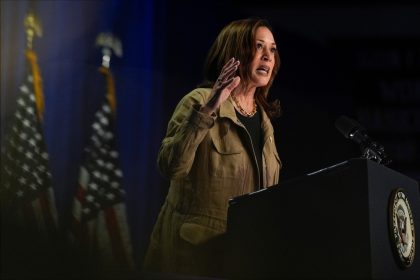Target Corporation has acknowledged a direct connection between its decision to scale back diversity, equity, and inclusion programs and a substantial decline in quarterly sales performance. The retail giant’s first-quarter results revealed a more than 7% drop in sales, which company leadership partially attributed to consumer backlash over changes to longstanding diversity initiatives.
The Minneapolis-based retailer’s financial struggles highlight the complex relationship between corporate social responsibility policies and business performance in today’s marketplace. As companies navigate political and social pressures, Target’s experience demonstrates the potential financial consequences of policy reversals that affect core customer demographics.
Sales performance reflects policy backlash
Target reported a 3.8% year-over-year decline in same-store sales during its first quarter, representing a slight deterioration from the 3.7% decrease recorded in the previous year. Chief Executive Officer Brian Cornell directly connected this performance to multiple factors, including consumer reactions to the company’s diversity policy changes and broader economic concerns about potential tariffs.
The executive team emphasized the difficulty of isolating individual factors contributing to the sales decline, noting that multiple variables simultaneously influenced customer behavior. Cornell acknowledged that while various elements played roles in the quarterly performance, the company cannot precisely quantify the specific impact of each contributing factor.
The sales figures represent a significant challenge for a retailer that has historically maintained strong performance through customer loyalty and brand positioning. The connection between policy changes and financial results underscores how quickly consumer sentiment can translate into measurable business impacts.
Belonging at the Bullseye strategy abandoned
The company’s retreat from diversity initiatives began in January 2025, coinciding with broader political changes following presidential inauguration activities. Target specifically discontinued its Belonging at the Bullseye strategy, which had focused on expanding hiring practices and supplier diversity requirements throughout the organization.
This strategic shift marked a departure from years of public commitments to diversity and inclusion principles that had become integral to the company’s brand identity. The Belonging at the Bullseye program had established specific goals for increasing representation across various organizational levels and business partnerships.
Target also ceased participation in external diversity assessment programs, including the Human Rights Campaign’s Corporate Equality Index, which evaluates companies on workplace equality policies. This withdrawal from established diversity measurement frameworks signaled a broader retreat from public accountability mechanisms.
Community leaders organize economic pressure
The Black Wall Street Ticker spearheaded organized consumer action against Target through a 40-day corporate fast campaign, encouraging supporters to avoid spending at Target locations from March 5 through April 17. This coordinated boycott effort aimed to demonstrate the economic influence of consumers who prioritized corporate diversity commitments.
Prominent religious and civil rights leaders including Rev. Jamal Bryant and Rev. Al Sharpton endorsed the boycott initiative, lending significant credibility and reach to the protest movement. Their participation helped amplify the message beyond traditional activist networks into broader community circles.
Rev. Bryant expressed particular disappointment given Target’s previous reputation as a diversity champion, describing the policy reversal as shocking for consumers who had viewed the retailer as an ally. His comments reflected broader sentiment that the company had betrayed established relationships with communities that had supported its business.
Executive dialogue attempts damage control
Following sustained pressure from advocacy groups, Rev. Al Sharpton engaged in direct discussions with CEO Brian Cornell during April 2025 to address community concerns and explore potential paths forward. The meeting represented an attempt by both parties to find common ground despite the policy disagreements.
Sharpton characterized the conversation as constructive and candid, suggesting that meaningful dialogue occurred between company leadership and community representatives. The civil rights leader’s assessment indicated potential openings for future collaboration, though specific commitments remained unclear.
The willingness of Target’s chief executive to engage directly with civil rights leaders demonstrated recognition of the seriousness of community concerns. These high-level discussions reflected the company’s awareness that the diversity policy changes had created significant relationship challenges with important customer segments.
Industry comparison reveals varied outcomes
Target’s experience contrasts sharply with competitors who maintained their diversity commitments during the same period. Costco, which preserved its DEI programs, reported increased revenue and customer traffic, suggesting that diversity initiatives may provide competitive advantages rather than liabilities.
Walmart faced similar challenges to Target after implementing comparable diversity program reductions, experiencing customer backlash and sales impacts. The parallel experiences of these major retailers indicate that diversity policy changes carry consistent risks across the industry.
The divergent outcomes between companies that maintained versus those that reduced diversity programs provide natural experiments in corporate policy impacts. These comparisons offer valuable insights for other businesses considering similar strategic changes.
Consumer behavior shifts reflect values alignment
The Target situation demonstrates how corporate social responsibility positions increasingly influence consumer purchasing decisions. Modern shoppers often consider company values and policies as factors in their retail choices, extending beyond traditional considerations of price and convenience.
Social media and digital communication platforms have amplified consumers’ ability to organize economic pressure campaigns, making corporate policy decisions more consequential for business performance. The speed and scale of the boycott response illustrate how quickly consumer sentiment can mobilize into coordinated action.
Brand loyalty in contemporary retail increasingly depends on alignment between corporate values and customer beliefs, creating new strategic considerations for company leadership. Retailers must balance various stakeholder interests while maintaining consistent brand positioning.
Financial implications extend beyond quarterly results
The sales decline associated with diversity policy changes represents more than temporary revenue disruption, potentially affecting long-term brand equity and customer relationships. Trust rebuilding efforts require sustained commitment and may take considerable time to show results.
Investor relations have also been impacted as shareholders evaluate the financial consequences of policy decisions and their effects on company valuation. The transparency about sales decline factors provides important information for financial markets assessing future performance prospects.
The situation creates precedent for how diversity policy changes can translate into measurable business impacts, influencing strategic decision-making across the retail industry. Other companies will likely study Target’s experience when considering their own policy positions.
Future strategy requires careful navigation
Target faces the challenge of developing policies that address various stakeholder concerns while maintaining business performance and brand integrity. The company must balance community relationships, investor expectations, and operational requirements in future diversity initiatives.
Ongoing dialogue between company leadership and community representatives may provide pathways for rebuilding trust and establishing new partnership frameworks. The success of these conversations will likely influence whether Target can recover lost customer loyalty and sales performance.
The retail landscape continues evolving as companies adapt to changing social expectations and political environments. Target’s experience serves as a case study in the complexities of corporate social responsibility in contemporary business contexts, demonstrating both the risks and opportunities associated with diversity policy decisions.














